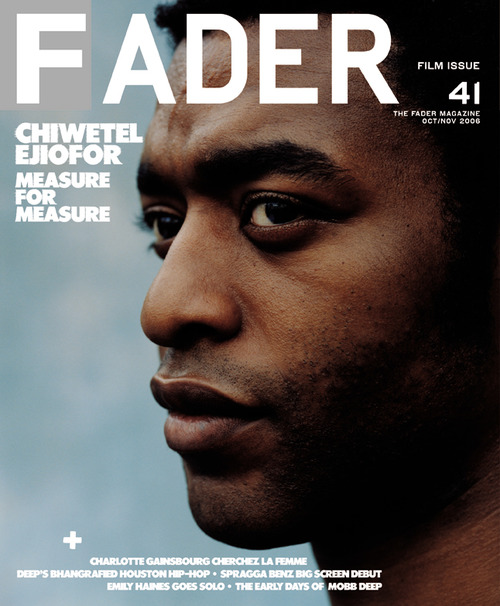The life of Solomon Northup—the free, black, middle-class, violin-playing New Yorker who was kidnapped and sold into slavery in 1841—lives on in his memoir, 12 Years a Slave, one of the most vivid accounts of human bondage in American history. He is passed from one plantation to the next as property. He is whipped after underperforming in the cotton fields. And he is forced to lash the plantation owner’s slave-mistress nearly to death under the psychotic gaze of Master Epps. But with the film-adaptation by director Steve McQueen, Northrup’s legacy has inherited a new memorial vessel: Chiwetel Ejiofor, the film’s Nigerian-English breakout star (seen previously on the cover of FADER’s 2006 film issue, and in smaller roles in Amistad and Children of Men). Even when it’s painful, it’s impossible not to watch the way Ejiofor’s Northup tells the story with his eyes: moist, heavy-lidded, and focused on survival. It’s the gaze of a man whose mind is drifting away from the hell he’s been banished to, toward somewhere more pleasant. It’s the perspective of someone who knows he should not be in the place where he is, and that the system of dehumanization, perpetuated with an indignant logic everywhere he looks, should never have existed in the first place.
McQueen’s visually stunning treatment of a historic moment is generating Oscar buzz, and will surely propel Ejiofor to more leading roles. The London-based actor spoke with The FADER about his process, the legacy of slavery in today’s society and happy endings.
Read more Here

